Image
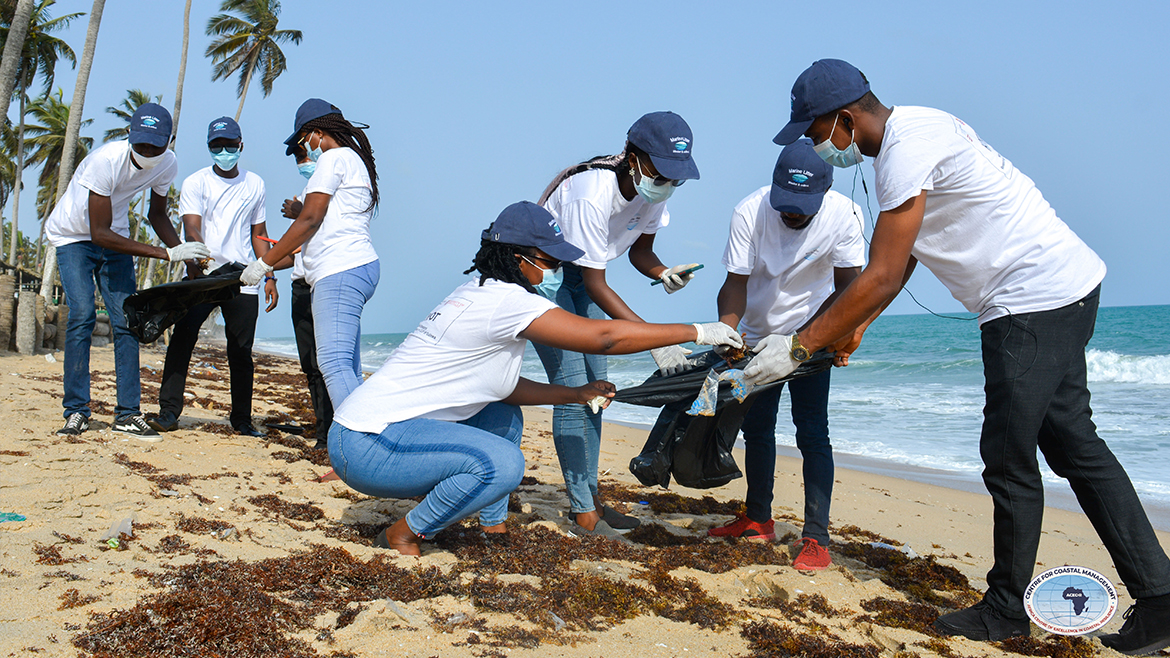
Posted On
Sunday, June 6, 2021 - 16:26
Body
Protecting the World’s Oceans: CCM and DTU-Aqua Deploy NOAA’s Marine Debris Tracker App for Beach Litter Monitoring
On the occasion of World Oceans Day 2021, the Centre for Coastal Management at the University of Cape Coast is joining many across the globe to demonstrate practical approaches towards safeguarding our oceans for the benefit of all mankind, now and in the future. The Centre, in the first half of the year, as part of its programmes, embarked on a beach litter monitoring campaign to quantify and classify beach litter in support of managing the menace.
The issue of marine litter has gained traction globally due to its potential deleterious effects on marine organisms. In Ghana, uncontrolled quantities of solid waste are released into the natural environment, most of which ultimately end up in water bodies and the ocean. Beaches in the country are visibly inundated with litter from human activities as well as deposited from the sea during high tide. Empirical data on types and quantities are however lacking but are important towards evolving solutions.
In this regard, DTU Aqua in Denmark in collaboration with the Centre for Coastal Management at the University of Cape Coast, Ghana under the HOTSPOT Project organized a three-week beach litter monitoring exercise on two beaches in the Central Region of Ghana. The aim of the exercise was to identify the types of beach litter and quantify them on the beaches using the NOAA Marine Debris Tracker App. This activity formed part of the MSc project of Frederikke Ebba Hastrup-Vang, an Aquatic Science and Technology student at DTU with principal supervision from Prof. Torkel Gissel Nielsen of DTU and local (Ghana) supervision by Mrs Sika Abrokwah, a research fellow at CCM. One of the project aims was therefore to develop a protocol and test the effectiveness of remote training of volunteers/field assistants for data collection which could be a guide for other remote training programmes in future.
A team of 10 volunteers from the Centre for Coastal Management and the Department of Environmental Science were trained virtually through online meetings, presentations and videos using the Zoom and WhatsApp platform. The volunteers included a multidisciplinary team of staff, students and national service persons of various backgrounds ranging from Environmental Science, Geography and Arts. This provided an interesting mix of ideas and inputs during the training sessions. It also provided a unique learning opportunity for these volunteers who have gained new insight and practical experience in how marine litter can be quantified and also the extent of the problem of marine litter on the Ghanaian coast.
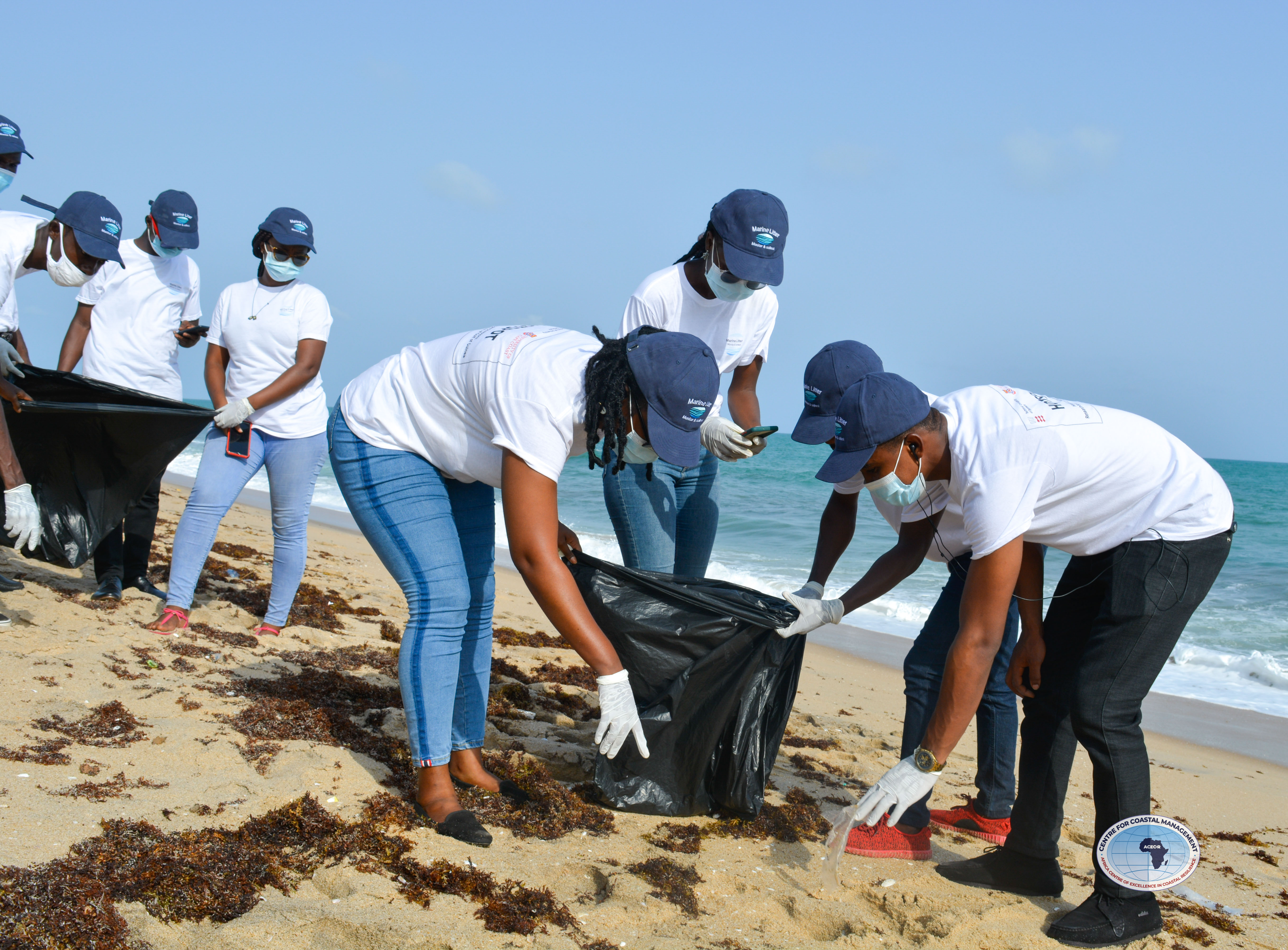
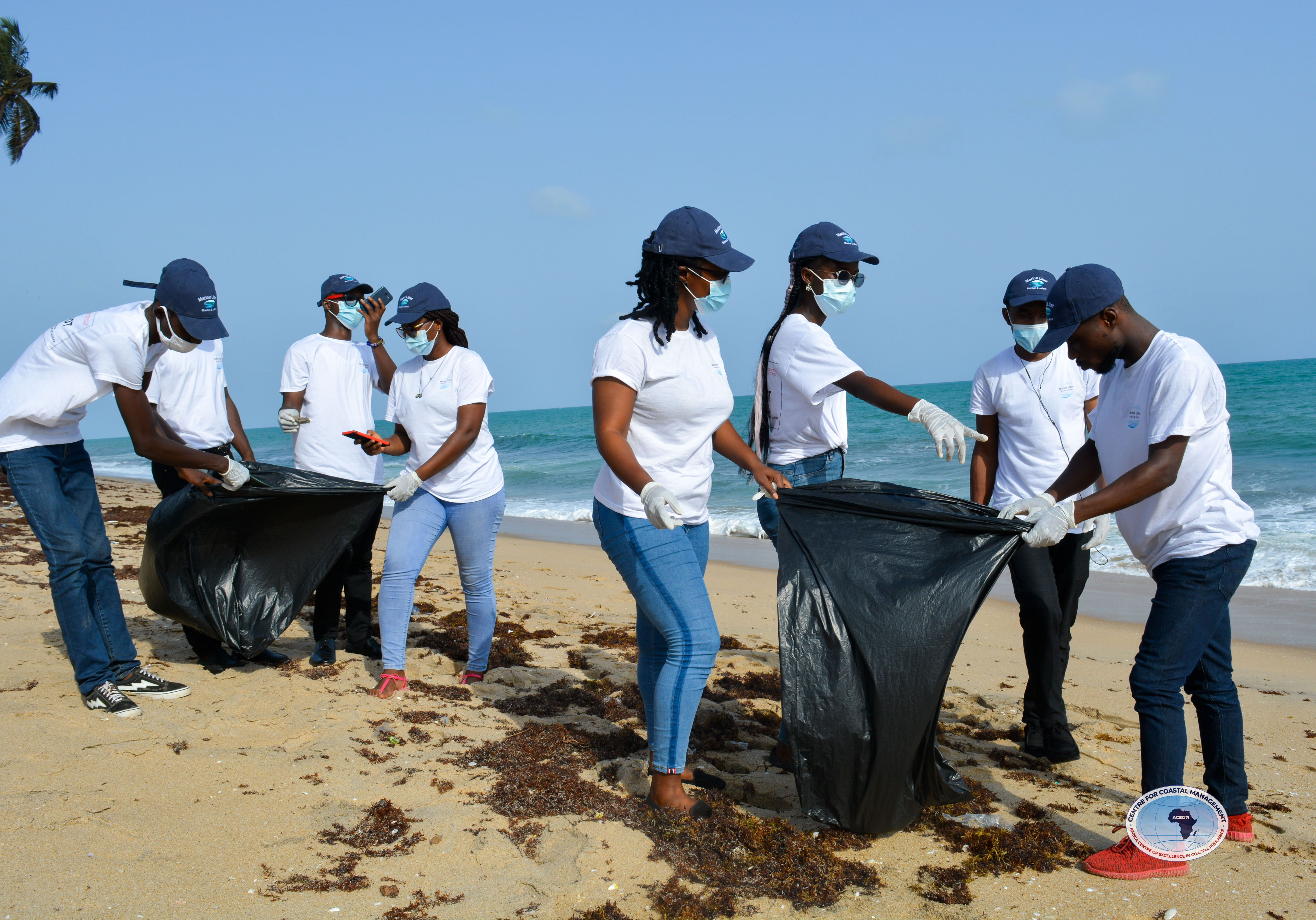
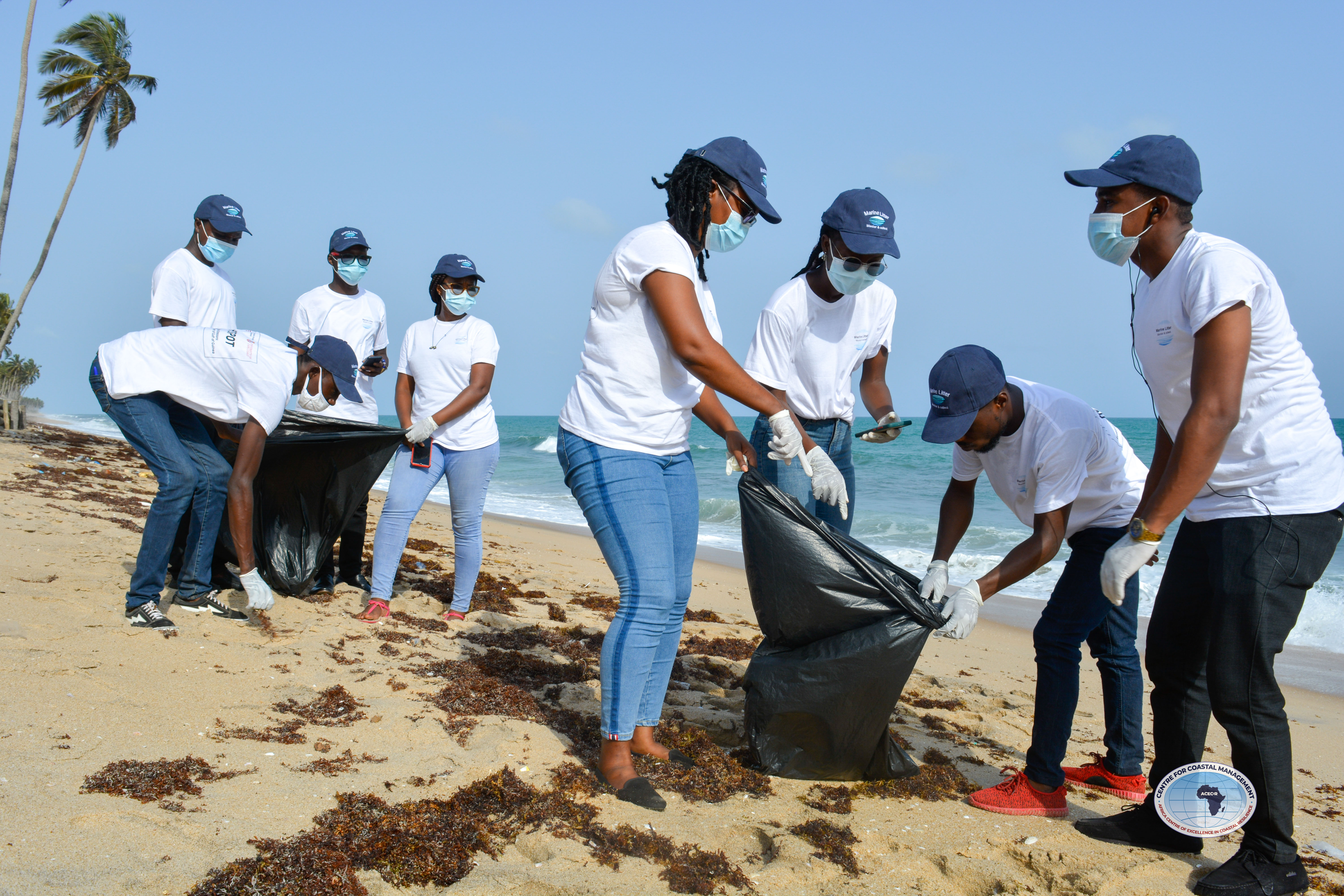
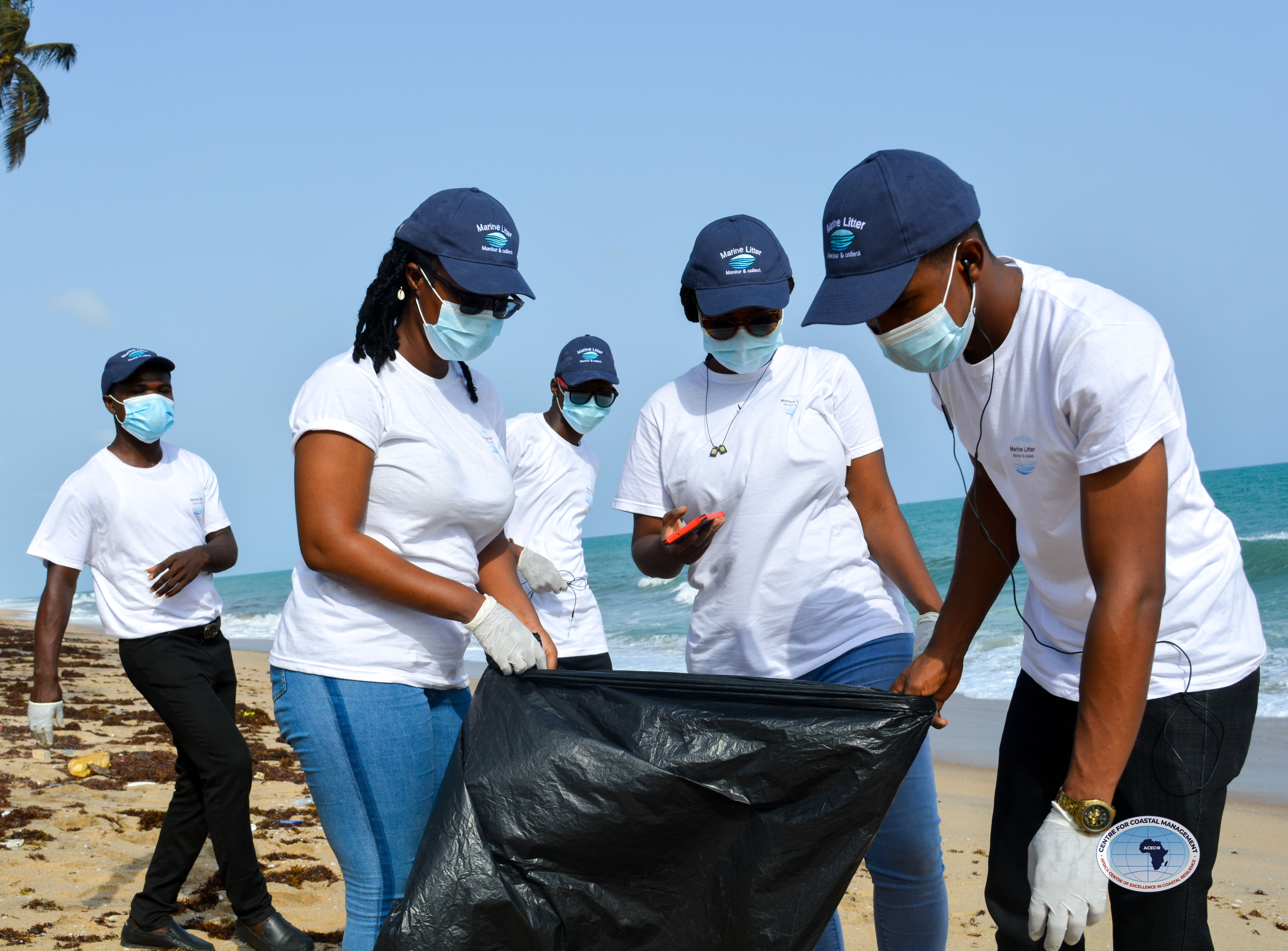
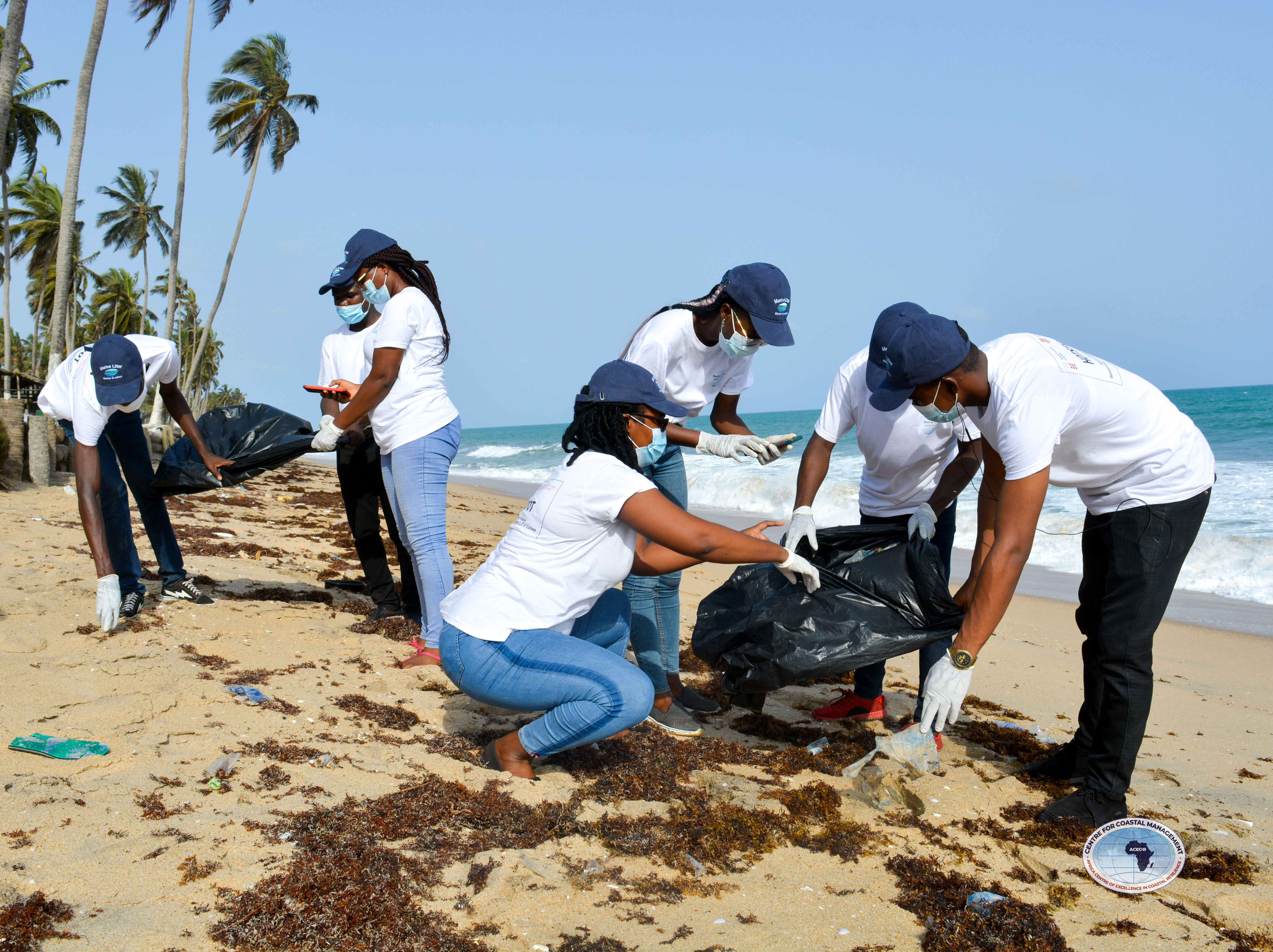
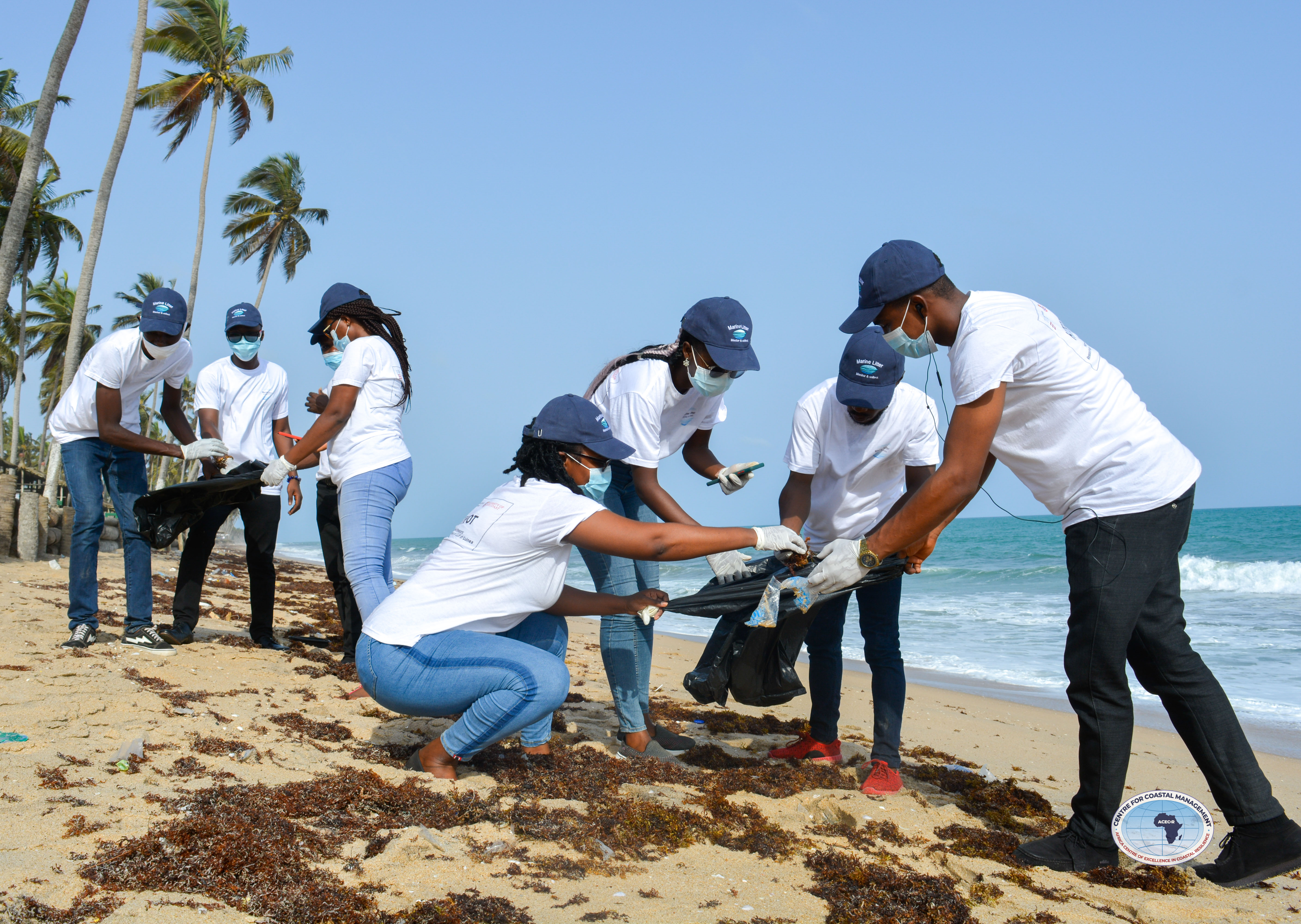
Last modified
